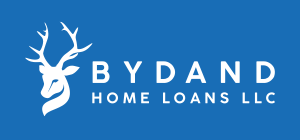
Purchasing a New Home in 2021
Photo by August de Richelieu from Pexels
Millions of Americans each year, consider moving out of that apartment, upgrading to a bigger home, or finally buying that dream house. It's still early in the year, so why don't we follow through on the housing resolution and look at some ways to know if you are ready to purchase a home in 2021?
1. How is My Credit Score Health?
Check out this blog devoted to several ways you can improve your credit score. Different lenders have different minimum credit score standards, but typically a score of at least 620 will give you a chance at being approved. However, that doesn't necessarily mean that you will get an optimal interest rate on your mortgage. The term "credit score" is a multi-faceted and aggregate indicator, which looks at many factors such as your credit payment history, debt-to-credit utilization, length of credit history, types of credit, and whether you have new credit accounts and/or inquiries.
Take a good look at your credit score health before purchasing a home, as it could be a decision that could save you thousands of dollars over the long haul. It is well worth the effort to take tangible steps to improve your credit score prior to purchasing a home. \
2. Do I Have Enough for a Down Payment?
Typically, the biggest tangible cost is whether you will have the necessary down payment to put down on your new house. The rule of thumb has traditionally been 20% as a down payment, but not all mortgages are the same. For example, United States Department of Agriculture or Veterans Affairs loans offer 0% down payment loans. Others fall within a wide range of down payments, from 3% to 20%, so it is important to check beforehand.
A majority of non-first-time home buyers will also utilize the proceeds from the sale of their home as a down payment for their next home, which can be hard to pin down exactly (until you close on the sale).
And don't forget, there are also closing costs associated with your home purchase transaction. This may include fees for an appraisal, home inspection, and/or title search, and will add up to between 2% and 5% of the loan amount. Your lender typically will provide a good faith estimate of the closing costs; check their reviews to make sure that you've selected a lender that is likely to meet or exceed client expectations.
3. Can I Afford the Monthly Payments?
Ok, so you have enough to plop down the necessary down payment. Time to look a bit ahead and determine whether you can afford the mortgage payment, property taxes, closing costs, and/or other fees that are associated with your home purchase. First, the biggest payment will be your primary mortgage payment. But that's not all. Next, property taxes are assessed, which vary of course, by municipalities and states. That will usually be the second-largest outflow. Third, if you have not put down 20% or more, you will likely have to pay for private mortgage insurance ("PMI"). PMI is an expense that protects the lender-borrower should they default on the loan. Next, there are other associated fees such as homeowners insurance (which protects the property against loss and is typically spread out over 12 months), or homeowners association fees, which are assessed in houses located in a specific community (typically in condominium and townhouse communities). Our simple, free mortgage calculator can help you determine costs based on the loan amount. Add up the monthly expenses and determine whether you can continue to afford the ongoing financial commitments once you close on your house.
4. Do I Have Enough Money to Make Upgrades and Pay for Unexpected Repairs?
Finally, if you have passed steps 1-3 outlined above, do you have sufficient savings or income to pay for emergency repairs or upgrades? For example, The Home Depot estimates that the average powder room remodel ranges from $5000-10,000, and replacing a metal shingle roof can cost anywhere from $8,945 to $16,890. Now, it is impossible to anticipate every unforeseen repair and home upgrade, but having some extra cash on hand would be useful, especially if you purchase an older home.
These are a few things to examine in helping you achieve your New Year's resolution to buy a new home. When you plan ahead carefully, you can make a better purchase decision. Here at Bydand, you can rest assured knowing that our team will walk you through each step of the process. It is our mission to provide steadfast solutions tailored to accomplish our clients' home financing goals. We'd love to help you get into your dream home. Just give us a call.

